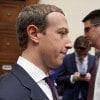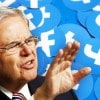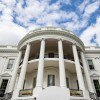Analysis | The Technology 202: Andrew Yang wants to hold social media companies legally responsible for content – The Washington Post

Democratic presidential candidate Andrew Yang files to have his name listed on the New Hampshire primary ballot on Nov. 8. in Concord, N.H. At left is New Hampshire Secretary of State Bill Gardner. (Charles Krupa/AP)
Ctrl + N
The 2020 Democratic presidential candidates are taking aim at the tech industry’s key legal shield as Silicon Valley continues to play the role of punching bag in the race to unseat President Trump.
Entrepreneur Andrew Yang, who led the nonprofit Venture for America that trains aspiring business leaders before jumping into the contest, is the latest. Yang said as president he would seek to amend Section 230 of the Communications Decency Act, which protects tech companies from liability for the content people post on their platforms. His goal is “to reflect the reality of the 21st century — that large tech companies are using tools to act as publishers without any of the responsibility,” Yang wrote in a blog post yesterday.
Yang said given the role tech companies’ algorithms play in spreading polarizing and false content, “there needs to be some accountability.”
Democrats are coming out swinging against Section 230 as they’re increasingly criticizing tech companies for not doing enough to address disinformation on their platforms. Some Democrats have suggested the only way to ensure that disinformation is effectively jettisoned from their platforms is to hold tech compabies legally responsible for it.
Yang is widely seen as one of tech’s top allies in the 2020 presidential field, garnering support from industry elites such as Tesla chief executive Elon Musk and Twitter chief executive Jack Dorsey. His call to overhaul Section 230 — which tech companies have characterized as essential to the existence of the modern Internet — signals how contentious the relationship between Democrats and Silicon Valley has become.
Former vice president Joe Biden also took a swipe at Section 230 at a CNN town hall on Monday as he raised concerns about Facebook’s handling of falsehoods on its platform. He said that “it’s a little out of hand. And I, for one, think we should be considering taking away the exemption that they cannot be sued for knowingly engaging on — in promoting something that’s not true.”
Biden has been escalating his attacks on Facebook since the company allowed the Trump campaign to run an ad that made false claims about his son Hunter’s ties to Ukraine. He’s also fundraised off Facebook’s announcement that the social network discovered Russian campaigns targeting him.
Rep. Tulsi Gabbard (D-Hawaii) is working on legislation to change the law as well. Her bill would “remove the protection from liability that some Big Tech platforms have,” her campaign spokesman Cullen Tiernan said. He added that the tech companies are “acting as publishers” and that “they should not have special protections if they allow false, defamatory, libelous articles or advertisements.” Gabbard’s plans were first reported yesterday by Politico’s Cristiano Lima.
Sen. Amy Klobuchar (D-Minn.) and Beto O’Rourke, the former Texas congressman who has dropped out of the presidential race, also floated changing the law earlier this year.
Tech companies have been fiercely defending Section 230, arguing that rolling back the provision will suppress voices or allow harmful content to flourish online because it also protects companies from lawsuits for taking down harmful content.
The fight over a somewhat wonky legal provision underscores that the presidential debate is moving beyond the large size of social media companies. Sen. Elizabeth Warren (D-Mass.) called to break up Google, Facebook, Amazon and Apple earlier this year, and her plan quickly became a litmus test for other candidates to weigh in on tech policy issues.
But in last month’s debate, candidates such as Yang questioned whether revising antitrust laws are the best course of action for addressing oft-cited problems, indicating they tech companies would be better off stressing their responsibility to address false and other problematic content.
“Applying 20th century solutions to 21st century problems is not the right way to go,” he wrote in his blog post. “Measures such as breaking up big tech companies to foster competition wouldn’t necessarily address the fundamental problems. Breaking up Google into 5 mini-Googles wouldn’t change much as people don’t want to use the fourth best search engine.”
Yang also proposed that individuals should own their own data and have certain rights to protect it. He also wants to create a new government agency that would study tech’s health implications, especially on children.
BITS, NIBBLES AND BYTES

Attendees at Amazon’s annual cloud computing conference walk past the Amazon Web Services logo in Las Vegas in 2017. (Salvador Rodriguez/Reuters)
BITS: Amazon will protest a Pentagon decision to award Microsoft a $10 billion cloud computing contract in federal court, citing “unmistakable bias” and “political influence,” my colleagues Jay Greene and Aaron Gregg report. Amazon appeared to take aim at Trump, who called for an investigation into the Joint Enterprise Defense Infrastructure contract this summer, citing concerns from Amazon’s rival that the Pentagon had unfairly advantaged the company in the bid process.
“We also believe it’s critical for our country that the government and its elected leaders administer procurements objectively and in a manner that is free from political influence,” Amazon spokesman Drew Herdener said in a statement. “Numerous aspects of the JEDI evaluation process contained clear deficiencies, errors, and unmistakable bias — and it’s important that these matters be examined and rectified.”
In an emailed response to Amazon’s statement, Defense Department spokeswoman Elissa Smith said, “We will not speculate on potential litigation.”
Amazon CEO Jeffrey P. Bezos owns The Washington Post.
Amazon rival Oracle protested the bid process in federal court, citing potential improper ties between Pentagon staff and Amazon, but lost its case this summer. It is appealing the ruling.

Pope Francis. (Andreas Solaro/AFP/Getty Images)
NIBBLES: Pope Francis said that tech companies and their investors must be held accountable for safeguarding minors against online exploitation during a Vatican tech conference yesterday. His speech follows reports about how tech companies are struggling with the rise of child abuse on their platforms as technologies including encryption and livestreaming make it virtually possible for them to catch abusive content.
“The protection of complete freedom of expression is linked to the protection of privacy through increasingly sophisticated forms of message encryption, which would make any control extremely difficult, if not impossible,” Francis said. He urged tech companies to find a “fitting balance” that protects free expression but also protects minors from criminal activity.
His remarks come as the Justice Department and lawmakers in the United Kingdom and Australia urge Facebook to halt its plans to fully encrypt its messaging service, citing fears it will increase the spread of child sexual imagery and child solicitation on the site.
Apple, Google, Microsoft and Facebook attended the Vatican’s “Promoting Digital Child Dignity” conference alongside law enforcement and judicial officials, Reuters’ Phillip Pullella reports.

Supreme Court Justice Brett M. Kavanaugh. (Susan Walsh/AP)
BYTES: A progressive group is running ads slamming Facebook for sponsoring a dinner honoring Supreme Court Justice Brett Kavanaugh hosted by conservative legal group the Federalist Society.
“Facebook should not be sponsoring the rehabbing of Brett Kavanaugh’s reputation when Dr. Blasey Ford remains unable to resume a normal life after bravely coming forward last year,” said Katie O’Connor, senior counsel for Demand Justice, the main group behind the ads, in a statement. Dr. Christine Blasey Ford and Deborah Ramirez last year accused Kavanaugh of sexually assaulting them, sparking a national debate about sexual misconduct as he was being confirmed to the court.
The group is hoping to drum up support from Facebook employees by geo-targeting some of the ads to Facebook’s Menlo Park, Calif., headquarters, in addition to LinkedIn ads targeting Facebook employees.
Facebook was the only tech company listed as a sponsor for the dinner, though Google has made donations of at least $100,000 to the Federalist Society in the past and sponsored previous events. Other sponsors of yesterday’s dinner included Verizon and T-Mobile.
This could add to the company’s tensions with Democrats. Warren slammed Facebook for sponsoring the event on Twitter:
Both employees and civil rights advocates criticized Facebook leadership last year when Vice President of Global Public Policy Joel Kaplan attended Kavanaugh’s confirmation hearing. Facebook said that Kaplan attended in a personal capacity, but civil rights groups have since called for Kaplan’s removal from the company.
Facebook did not respond to a request for comment.
PUBLIC CLOUD
Sens. Christopher Coons (D-Del.) and Mike Lee (R-Utah) introduced a bill that would require law enforcement to obtain warrants to use facial recognition technology for surveillance use beyond 72 hours. But civil rights groups say the law still carves out exceptions for potentially discriminatory use of the technology against communities of color.
“Facial recognition technology can be a powerful tool for law enforcement officials,” Lee said in a statement. “But its very power also makes it ripe for abuse. That is why American citizens deserve protection from facial recognition abuse.”
But a loophole allowing officers with “exigent circumstances,” such as to prevent physical harm to bypass the warrant process, has some advocates worried.
“It’s good to see that Congress wants to address this issue, but this bill falls utterly short,” Evan Greer, director of Fight for the Future, said in a statement. “We need legislation that bans all law enforcement use of facial recognition, and strictly limits its use by private individuals and corporations.”
Fight for the Future has advocated for Congress to ban facial recognition technology. Yesterday activists for the group used Amazon’s Reckognition software to scan more than 13,000 faces in Washington. The software made more than 40 false identifications and only one correct one, which underscores the group’s message, it says.
Both Microsoft and the Information Technology and Innovation Foundation have expressed support for the bill.
— More new from the public sector:
Civil rights groups demand changes to Facebook’s political speech policy
A coalition of civil rights groups are demanding that Facebook overhaul its political speech policy, according to a letter obtained by The Hill Thursday.
The Hill
States’ massive Google antitrust probe will expand into search and Android businesses
So far, the investigation, which is being led by Texas’ attorney general, has explicitly focused on Google’s advertising business.
CNBC
Senator Grills Facebook on ‘Failure’ to Stop Anti-Vaxx Ads
After a Daily Beast report found anti-vaxx content thriving on Facebook, Sen. Bob Menendez wants answers.
The Daily Beast
Uber Hit With $650 Million Employment Tax Bill in New Jersey
Uber Technologies Inc. owes New Jersey about $650 million in unemployment and disability insurance taxes because the rideshare company has been misclassifying drivers as independent contractors, the state’s labor department said.
Bloomberg Law
PRIVATE CLOUD
— Facebook said last night that people already banned from its services won’t be allowed to create campaign pages on Facebook or Instagram. The company’s statement clarifies how it will handle the campaign of far-right figure Laura Loomer, who has previously been banned from the service and is running for Congress in Florida.
“People who have been banned from our services aren’t able to set up a new account even if they’re running for office,” Facebook spokesman Kevin McAlister said.
— News from the private sector:
Health
Majority of anti-vaccine ads on Facebook were funded by two groups
A group headed by Robert F. Kennedy Jr. and a California-based organization bought 54 percent of the anti-vaccine ads on Facebook. Researchers said the study shows how a small group of anti-vaccine ad buyers successfully used the social media platform to reach targeted audiences.
Lena Sun
Whistle-Blower’s Purported Name Keeps Evading Facebook and YouTube Defenses
The sites said they would delete posts that include the purported name of the Ukraine whistle-blower. But the name keeps reappearing.
New York Times
Apple hires pro-Trump lobbyist as it tries to avoid tariffs on iPhone parts and other products
Apple hires pro-Trump lobbyist as it looks to avoid tariffs on iPhone parts and a variety of other products.
CNBC
Google to Restrict User Information It Gives Advertisers
The tech giant said its ad exchange would stop telling advertisers what categories of websites users are visiting, a concession to European data-protection authorities.
Wall Street Journal
Pinterest Has a New Plan to Address Self-Harm
The company has gotten better at removing distressing content. Now it wants to help users feel better.
Wired
#TRENDING
— Tech news generating buzz around the Web:
Why thousands of Amazon packages converge on a tiny Montana town
A growing industry of “preppers” repackages goods from other stores before sending them to Amazon
The Verge
Nazis Got Me Kicked Off of Twitter
How the far right exploits the platform’s clueless approach to hate speech
OneZero
So the Internet Didn’t Turn Out the Way We Hoped. Now What?
It was supposed to be a utopia. Instead … it’s complicated. Here’s a guide to our online future — with maps, graphs and cats.
The New York Times
CHECK-INS
— Coming up:
- On Wednesday the Senate Commerce Committee will host a hearing on the deployment of autonomous vehicles at 10 a.m.
- The House Financial Services Committee will host a hearing on the role of big data in financial services on November 21 at 9:30 a.m
WIRED IN
Here’s a video from Fight for the Future’s day scanning faces on Capitol Hill:


















